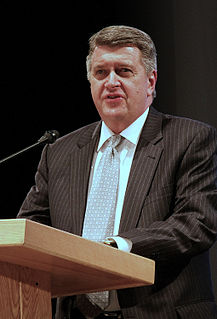A Quote by Oliver Wendell Holmes Sr.
[Science is] piecemeal revelation.
Quote Topics
Related Quotes
It opposes the dogmatic application to all cases of what is adequate only for piecemeal aggregates. The question is whether an approach in piecemeal terms, through blind connections, is or is not adequate to interpret actual thought processes and the role of the past experience as well. Past experience has to be considered thoroughly, but it is ambiguous in itself; so long as it is taken in piecemeal, blind terms it is not the magic key to solve all problems.
How wonderful it is that we believe in modern revelation. I cannot get over the feeling that if revelation were needed anciently, when life was simple, that revelation is also needed today, when life is complex. There never was a time in the history of the earth when men needed revelation more than they need it now.
I believe in revelation, but not in revelation which each religion claims to possess, but in the living revelation which surrounds us on every side - mighty, eternal, unceasing, incorruptible, clear, distinct, universal as is the being from whom it proceeds, in that revelation which speaks to us and penetrates us from the moment we are born until we die.
One major difference between Mormons and evangelicals on the subject of revelation is that Latter-day Saints believe that God has appointed modern-day prophets and apostles to receive revelation for Christ's church. All church members may receive revelation appropriate for their particular callings or positions within the church and their families, but never in contradiction to church doctrine or policy. So Mormonism has both a democratic practice of revelation that would resonate with evangelicals, but also an institutional understanding of revelation foreign to evangelicalism.
The true contrast between science and religion is that science unites the world and makes it possible for people of widely differing backgrounds to work together and to cooperate. Religion, on the other hand, by its very claim to know “The Truth” through “revelation,” is inherently divisive and a creator of separatism and hostility.
I am open to [the notion of theistic revelation], but not enthusiastic about potential revelation from God. On the positive side, for example, I am very much impressed with physicist Gerald Schroeder's comments on Genesis 1. That this biblical account might be scientifically accurate raises the possibility that it is revelation.






































